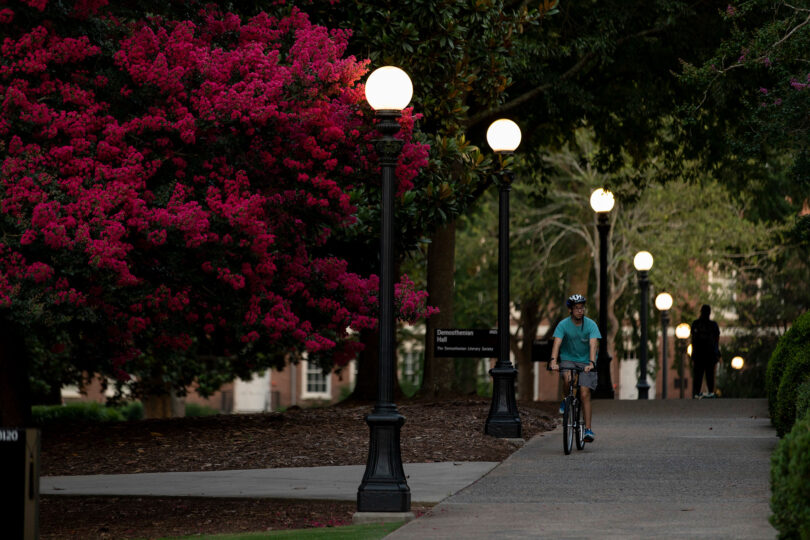UGA three-year fundraising average hits record $235.1 million
Donors have long been a powerful source of progress at the University of Georgia, and the past year was no exception. Private donations to UGA in fiscal year 2023 reached $242.8 million, the second-highest fundraising total in the university’s history.
“I want to express my sincere thanks to each and every donor for helping us continue to elevate the University of Georgia to new heights,” said President Jere W. Morehead. “UGA would be a vastly different place without the generous support of our alumni, friends and the UGA Foundation. Private giving helps faculty members raise the bar in their fields, helps connect communities across Georgia to university resources, and helps students achieve things they never thought possible.”
From July 2022 to June 2023, 71,223 donors contributed to UGA, resulting in the third consecutive year—and sixth year of the last seven—that donations have surpassed $200 million. The university’s three-year rolling average, which averages the three most recent years of giving, rose to a record $235.1 million—the third consecutive year this number has risen and the sixth consecutive year it has exceeded $200 million.
“What is so special about the UGA community is that their support is not just strong, it is always so consistent” said Neal Quirk, who chaired the UGA Foundation Board of Trustees during FY23. “Year in and year out, our donors give generously, and that reliable support is so very valuable. No matter what economic conditions arise, the university and its students can thrive thanks to the backing of our great alumni and friends. It makes our entire board very grateful and very proud.”
Over the course of the year, donors endowed 16 faculty positions, bringing UGA’s total to 356, and created 158 scholarship funds. In total, private giving established 301 endowed funds, which will provide reliable, long-term funding to a multitude of areas at the university.
But these numbers tell just a small part of the story. Donor support for UGA took many forms during the 2023 fiscal year. Among them:
- The UGA College of Engineering is significantly expanding its work in electric mobility thanks to a $5 million investment from Georgia Power Company—the largest single gift ever made to the college. This funding will create scholarships for students pursuing an e-mobility certificate, support e-mobility research and facilitate a statewide e-mobility network and community partnerships.
- A new, women-directed fundraising group, Georgia Women Give, launched in March to invite more women to become philanthropists and deepen their engagement with UGA. Since then, the group of 75 founding donors have raised over $1.8 million, all directed to three funds supporting scholarships, study away and UGA priority areas.
- The UGA Poultry Science Building continued to receive significant support, including the largest single gift toward the building to date: a $3 million pledge from the Luther and Susie Harrison Foundation. The building—a 70,000+ square foot, state-of-the-art facility on D.W. Brooks Drive—will help make UGA the global epicenter of poultry science. Its doors will open this fall, with classes beginning in spring 2024.
- A gift of $1.5 million that, along with a previous commitment, established the John and Alice Sands Offensive Coordinator position on the football team.
- Chick-fil-A pledged $1.5 million to develop a new statewide youth leadership program and annual summit. The Youth LEAD Georgia program will provide college- and career-readiness through leadership development for 30 to 40 rising Georgia high school sophomores and juniors each year, and the summit will take place at UGA, bringing together high school students from each of Georgia’s 159 counties.
The University of Georgia’s annual Dawg Day of Giving provided perhaps the best example of how widespread support for UGA has become. On March 30, donors contributed 11,091 gifts to UGA in 24 hours, setting a single-day giving record at the university for the second year in a row. Donors hailed from all 50 states, and their gifts totaled $5.6 million.
The annual Senior Signature student giving campaign also set a record this year, with 3,377 members of the Class of 2023 donating to the class gift program, which has been in place since 1991. Parents of UGA students set high watermarks as well when the Parents Leadership Council both raised and awarded over $1 million to benefit campus organizations.
“UGA’s status as a powerhouse of academics and athletics relies so much on donor support. We just can’t thank our generous supporters enough,” said Jill S. Walton, interim vice president for development and alumni relations. “Our successes are in large part thanks to them, so watching that support grow is exciting—just imagine where our students, our university and our state will go next.”




